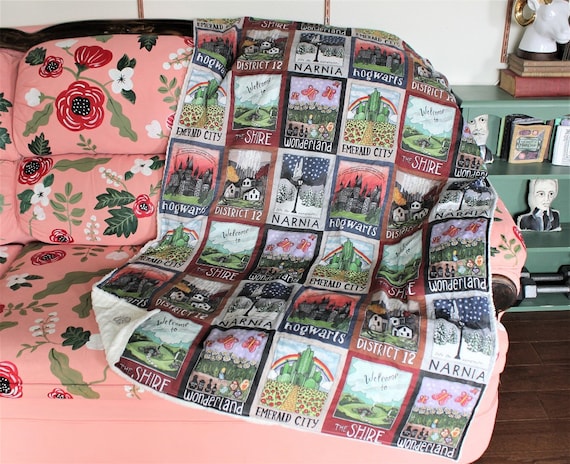- Sometimes, you read a book and it fills you with this weird evangelical zeal, and you become convinced that the shattered world will never be put back together unless and until all living humans read the book. And then there are books like An Imperial Affliction, which you can’t tell people about, books so special and rare and yours that advertising your affection feels like a betrayal.
If I say nothing else about this book then I at least need to say that this ^^ is possibly the best quote about books and reading that I’ve seen.
Who am I
kidding, though. Of course I’ve got more to say.
I’m still in a funny place with The Fault in Our Stars. I can’t get it out of my head. I keep finding
myself thinking back to it, and grinning or getting a lump in my throat; I gave
it 4 stars on Goodreads because even though I really loved it, I wasn’t sure if
I could give 5 stars to a book that broke me.
I was in tears for 26%. Does that deserve 5 stars? I’m contemplating upping to a 5 anyway because
it’s a week down the line and I’m still thinking about it. It just, it
resonated with me on a lot of levels.
There seems to a lot more good YA fiction around these days
than there was when I was a young adult, which sucks for the me that was around
10-15 years ago [or, is it just that when I was a young adult I was too busy
trying to pretend I wasn’t and so
missed it all out trying to be grown up? That’s a definite possibility…] and
God, I am so not part of the demographic these books are aimed at but I can’t
not read them.
I read an interview recently with John Green [who I love, by
the way] where he says something about always being annoyed when adults insult
the intelligence of teenagers and that is so
on the money and is exactly why someone like me [almost 30 and when did that
happen] can still get a hell of a lot out of a book marketed as being YA
fiction, because, if well-written it can be just as intelligent and
though-provoking and cleverly told and well-woven as any other novel. I think
TFiOS is one such book. Hazel and Augustus are two of the most wonderfully
crafted characters I’ve read in a long time, and everything about them is so real, not just the cancer of it all but them, as teenagers and as people,
You may or may not know that I lost somebody very very close
to me to cancer back in 2005. I don’t talk about it often, because it was a bit
shit and it’s easier not to somehow and because I don’t want it to define who
I am, and I’m not going to dwell on it now: if you were around back then you
know the story and if not, well I don’t want to talk about and you don’t want
to read about it but it’s worth mentioning because it feels relevant to my interpretation
of and my reaction to this book; I wonder if it’s perhaps why TFiOS has gotten
so deeply under my skin. Is it because it’s a genuinely moving book, or, is it
because I can relate to it?
I don’t read books about cancer, I put off reading this for
a long time. I’d picked it up a few times in bookshops but always put it down,
I’d read blogs singing it’s praises [he has a massive massive fan-following our
John Green, it’s kind of inspiring] but always thought it wasn’t for me but
then curiosity got the better of me. I was reading about this book everywhere
and in a completely opposite reaction to the Fifty Shades phenomenon, this time I wanted to see what the fuss
was about. I’m still not sure if I’m glad about that or not. I honestly have no
clue – even a week after finishing it – how I feel about it. Some of the story
is so subtle, so clever that you don’t even realise that’s another of your
heartstrings snapped right in two until it’s happened. There’s this one line
for example, a simple ‘he’d taken the
elevator’ [which means nothing out of context I am aware and I apologise]
and I read it and I had to take a really massive breath because wow, that hurt
when I wasn’t expecting to be hurt and you totally snuck that in there Mr.
Green, and that’s what good writing is about, right? The ability to say so much
by saying not a lot at all?
The book tells Hazel’s story and Hazel is incredible. She
knows she’s dying, she knows she’s going to die and she’s accepted it. She
thinks it sucks, but she’s accepted it; she talks about when she’ll die and not if.
She’s dying this kid, and you better just deal with it because I am telling you
now and this is not a spoiler: magical cures do not exist in these pages.
And then Hazel meets Augustus at a cancer support group,
Augustus Waters who makes her see herself in a different light, makes her see
her life in a different light and the
slow unfolding of her relationship with him is so raw and so honest and so
beautiful that it makes your chest tight. Hazel is adorable and God, I know I’d have been in love with Gus when
I was 16 [I love him so much now] and watching them grow together, discovering
the depth Green brings to their characters and to their relationship, it kind
of felt like an honour.
He’s funny too, John Green -
he had me laughing out loud even though my eyes were stinging but it’s
no light-hearted comedy; when it needs to be sad it’s really freaking sad. I’m
talking actual sobs, tipping my head back and closing my eyes and counting to
ten because I just can’t. I’m talking
wet neck people, wet neck. This book
is capital letter SAD.
The thing about cancer is it’s fucking awful. It’s ruthless
and it’s angry and it’s devouring and it just takes takes takes til there’s
nothing left and when it’s taken everything it hangs around and it haunts the
people it’s left behind. Green seems to get that, he gets what it does and he
gets what it’s like to watch and he does not shy away from it and it gives me
goose-bumps even now thinking about the way in which he’s approached it – and how
brave because it’s a subject so close to so many, that people see so
personally. He did it justice though I think, more than. These two kids, Hazel
who is terminally ill and so damn sassy and Augustus who is in recovery and has
this mindblowing zest for life
falling in love and knowing it’s not
going to last as long as they want but being unable to do anything about it and
wanting to just make the most of whatever they have is so beautiful. The
last quarter or so of the book is perhaps the most painful piece of writing
I’ve ever read.
Let’s be real here.
This book broke me into pieces; I thought I could handle it but I
couldn’t and you know what? It wasn’t all because of the memories it awoke, or
because I was crying for myself. It wasn’t. I mean yeah, some of it hit home
harder because of that, some of it hurt a little more, some of it was harder to
read because of how true it was and because I remember what that was like, but most of all I hurt for Hazel and Augustus
and for Hazel’s parents [Hazel’s Mum and Dad are very well-written, which I liked because often in YA fiction the
adults aren’t as fully fleshed so well done Mr. Green]; most of all I was just
lost in this beautiful awful wonderful heart-breaking story and I’m reminded a
little bit of Love Story, which I
stupidly read when I was about 14 and God, I thought I’d never be happy again
and I still can’t talk about it without
crying. [“What can you say about a
twenty-five year old girl who died? That she was beautiful and brilliant. That
she loved Mozart and Bach. The Beatles. And me.” And love
means never having to say you’re sorry and the fact that Jenny’s last words
were thanks Ollie and who gave you
the right Erich Seagal, who? I am still not over it.]
TFiOS is better than Love
Story.
I finished reading at 1.30 in the morning with tears
streaming down my face and didn’t sleep much and was sad to my very core. And
then I got up and went to work and was ok, and thought I was fine, and then a
few days passed and I was sat at my desk yesterday and just remembered:
“Hazel GRACE!” he shouted. “You did not use your one dying Wish to go to Disney World with your parents.”
“Also Epcot Center,” I mumbled.
“Oh, my God,” Augustus said. “I can’t believe I have a crush on a girl with such cliché wishes.”
I emailed Helen who was about ¾ of the way through and tried
to tell her I had a sad but tried not to tell her why and I realised I wasn’t
ok. I was drowning in feelings, so here I am blogging it out and trying to make
some sense of how I feel and quite honestly getting nowhere other than it’s a
good book and it’s a funny book and it’s a sad book and I don’t know whether I
think you should read it or not and cancer
sucks.
Thank-you for your time.



